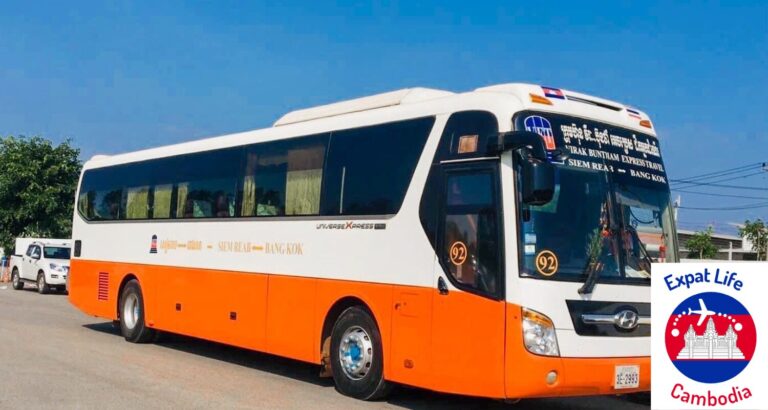Health and Travel Insurance in Cambodia: A Guide for Expats
Navigating health and travel insurance is critical for expatriates living in Cambodia. While the country’s healthcare infrastructure is growing, gaps remain, making comprehensive insurance essential for managing medical emergencies and unexpected travel disruptions.
Cambodia offers more affordable healthcare compared to Western countries, but sudden costs can be prohibitive without adequate coverage.
Current State of Health Insurance in Cambodia

Health Insurance Landscape
Health insurance in Cambodia primarily includes local and international plans. Many expatriates favor international plans due to the limited coverage and quality of local insurance. Private healthcare services are preferred over public options, which often lack adequate facilities and trained personnel.
Common Health Issues
Expats commonly face:
- Infectious Diseases: Dengue fever and gastrointestinal infections.
- Chronic Conditions: Diabetes and hypertension.
- Dental Problems: A significant concern given limited local specialists.
Proactive health measures, such as vaccinations and regular health screenings, are vital for long-term well-being.
Key Entities Involved in Health Insurance

Ministry of Health (MoH)
The MoH oversees healthcare regulations and ensures providers meet standards. However, enforcement and transparency are ongoing challenges.
Major Insurance Providers
Here are some reliable providers offering tailored plans:
| Provider | Key Features | Learn More |
|---|---|---|
| AIA Cambodia | Comprehensive long-term health plans | AIA Cambodia |
| LUMA Insurance | International plans with evacuation coverage | LUMA Insurance |
| Prudential Cambodia | Digital-first health insurance options | Prudential Cambodia |
| Forte Insurance | Extensive Medi+ packages for individuals and families | Forte Insurance |
Role of NGOs
Organizations like Medicins Sans Frontières work to bridge healthcare gaps, especially in rural areas, while raising awareness about health risks.
Types of Health Insurance Available
Local Health Insurance Plans
- Pros: Affordable premiums and localized coverage.
- Cons: Limited benefits, fewer specialized options, and no evacuation coverage.
International Health Insurance Plans
- Pros: Comprehensive benefits including global coverage, evacuation, and maternity care.
- Popular Providers:
- Cigna: Flexible coverage for expats.
- Allianz: High-end global coverage options.
- Morgan Price: Cost-effective for Southeast Asia residents.
Travel Insurance Considerations
Why Travel Insurance Matters
Travel insurance protects against unforeseen circumstances such as:
- Trip cancellations or interruptions.
- Lost luggage and passports.
- Emergency medical treatment during travel.
Key Features
- Adventure Coverage: Essential for trekking and diving.
- Evacuation Services: Critical for remote or less-equipped areas.
Recommended Providers
- World Nomads: Adventure travel-friendly plans.
- SafetyWing: Affordable global travel coverage for digital nomads.
Cost of Health and Travel Insurance
Here’s a breakdown of typical costs:
| Insurance Type | Annual Cost (USD) | Coverage Highlights |
|---|---|---|
| Local Health Insurance | $300–$600 | Basic coverage; limited benefits. |
| International Health Insurance | $1,000–$3,000 | Comprehensive; includes global medical evacuation. |
| Travel Insurance | $50–$200/trip | Emergencies, cancellations, personal belongings. |
International plans may seem expensive, but they often include life-saving evacuation options, which can cost upwards of $50,000 without insurance.
Challenges Facing Health Insurance in Cambodia
Public Awareness
Many Cambodians and new expats are unaware of the importance of health insurance, relying instead on out-of-pocket payments.
Regulatory Oversight
The regulatory framework is evolving, but challenges like unregistered providers persist. Always verify a provider’s credentials with the Cambodian Ministry of Economy and Finance.
Access Disparities
Urban areas like Phnom Penh have private hospitals such as Royal Phnom Penh Hospital, but rural areas face shortages in quality care.
Emergency Medical Services
Emergency Numbers
- 119: General medical emergencies.
- 117: Police assistance (in case of accident-related injuries).
Key Facilities
For critical emergencies, facilities like Royal Phnom Penh Hospital and Royal Angkor International Hospital in Siem Reap offer high-quality services.
Health Tips for Expats
- Vaccinations: Ensure coverage for Hepatitis A/B and Typhoid.
- Preventive Care: Regular screenings at international-standard clinics like Raffles Medical.
- Stay Hydrated: Heat-related illnesses are common, so drink plenty of water.
Conclusion
Living in Cambodia as an expatriate offers unique opportunities but also comes with health risks. By investing in the right health and travel insurance, expats can secure peace of mind and financial protection. Be proactive: research your options, prioritize comprehensive coverage, and ensure your plan fits your lifestyle and travel needs.
For more details, explore resources like i-Brokers Health Insurance Guide and local health blogs for updated insights.







